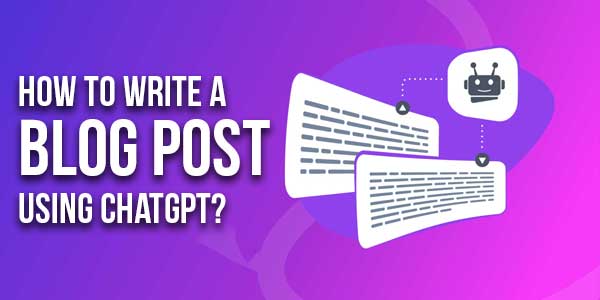
Creating blog content using AI can be incredibly efficient, but avoiding the typical signs of AI generation requires a thoughtful approach. This guide will cover practical strategies for using ChatGPT to write a blog post while maintaining a human touch, enhancing readability, and ensuring SEO optimization.
Table of Contents
Understanding The Characteristics Of AI-Generated Content:
AI-generated content often has distinct characteristics that make it identifiable. Knowing these markers helps you avoid producing similar traits in your work.
Key Indicators Of AI-Generated Content:
- Repetitive Language And Phrasing
AI tends to repeat certain words and structures, making the text sound mechanical. - Overly Formal Or Stiff Tone
AI can sometimes lean towards a formal style, which may come across as too rigid. - Predictable Sentence Structure
AI usually follows a straightforward structure, lacking the variety that human writers naturally employ. - Lack Of Personal Touch
Content can feel impersonal or too generic, as AI cannot bring in personal experiences or nuanced opinions.
“AI-generated content can be a powerful tool, but avoiding detection requires refining the output to enhance readability and human warmth.”
Using ChatGPT To Generate Content Effectively:
Using ChatGPT for content creation starts with the right approach to prompt design and structure.
Crafting Effective Prompts:
- Provide Detailed Instructions
Being specific about the tone, style, and purpose will yield more relevant content. - Request Informal Or Conversational Tone
Instructing ChatGPT to use an informal tone can help make the content sound more approachable. - Use Step-By-Step Prompts
Breaking down prompts into stages ensures better control over the content structure and quality.
Example Of A Step-By-Step Prompt:
- Start With An Outline: Ask ChatGPT to generate a detailed outline based on your topic.
- Focus On Specific Sections: Prompt ChatGPT to write individual sections rather than the entire article at once.
- Ask For Human Examples: Request analogies, relatable examples, or comparisons that add a human perspective.

Rephrasing AI Text For Human Tone:
One effective method to make AI-generated content sound more human is rephrasing key sections.
Techniques For Rephrasing AI Text:
- Use Synonyms And Reword Sentences
Replace words with synonyms, vary sentence structure, and add transitions for better flow. - Incorporate Personal Anecdotes
Adding relatable, real-world examples makes content more engaging and unique. - Break Down Complex Sentences
Shorter, varied sentences improve readability and feel more natural. - Use Humorous Or Colloquial Language
Including casual language and humour can make the content feel warmer and more personable.
“The key to humanizing AI content is infusing it with relatable experiences and ensuring it reflects a natural rhythm in writing.”
Incorporating SEO Without Overloading:
AI can sometimes overuse keywords or generate content that feels stuffed with SEO terms. Here’s how to keep it optimized but natural.
Best Practices For SEO Optimization:
- Choose A Primary Keyword
Focus on one main keyword to avoid keyword stuffing, then add a few relevant secondary keywords. - Use Keywords Naturally
Place keywords where they fit organically, such as in headers, opening lines, and conclusions. - Include LSI Keywords
Use Latent Semantic Indexing (LSI) keywords—terms related to the primary keyword that enhance context without redundancy. - Optimize Meta Descriptions
Write engaging, keyword-focused meta descriptions for better search visibility.
Checking Content For AI Detection:
Running your content through AI detection tools is essential to ensure it passes as human-written.
Recommended AI Detection Tools:
- Originality.ai
Offers AI detection and plagiarism checking, helpful for spotting AI-like phrases. - GPT-2 Output Detector
An open-source tool that identifies probable AI-generated text patterns. - Cross-Check With Grammarly
Grammarly can assist in refining grammar, ensuring a natural tone, and improving readability.
Optimizing Readability And Flow:
To achieve a more human-like flow, focus on readability and coherence, which are critical in engaging human readers.
Techniques For Improved Readability:
- Use Headers And Sub-Headers
Breaking down content into sections makes it digestible and encourages reader engagement. - Add Bullet Points For Clarity
Lists can help simplify complex ideas, making them easy to follow. - Shorten Paragraphs
Aim for 2-3 sentence paragraphs to avoid overwhelming the reader. - Include Transitional Phrases
Transitional words like “furthermore” and “on the other hand” create smoother connections between ideas. - End With A Conclusion
Summarize the key points and include a call to action for a satisfying reader experience.
“Readable, well-organized content is one of the best ways to make sure your audience feels connected and engaged with your blog post.”
Conclusion:
Writing blog posts using ChatGPT without making them seem AI-generated involves a few strategic tweaks. By understanding AI-generated markers, rephrasing content for a more human tone, optimizing SEO thoughtfully, checking for AI detection, and focusing on readability, you can create natural, engaging posts. With practice and these techniques, you’ll be able to make the most out of AI-generated content without compromising quality or authenticity.
By using ChatGPT wisely, it’s possible to produce blog content that feels as genuine and relatable as if it were written from scratch.














Be the first to write a comment.